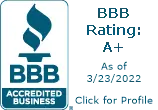Increased Credit Cards and Risky Home Loan Reach Highest Levels Since 2008
The answer is “yes”
 Credit card debt and risky home loans increase
Credit card debt and risky home loans increase
According to an article in ACC International (an Association of Credit and Collection Professionals) “On the heels of a strong holiday shopping season, our data show that consumers are charging more of their purchases, a positive sign for the credit card industry,” said Nidhi Verma, director of research and consulting in TransUnion’s financial services business unit. “With a stabilized delinquency environment reflected by essentially the same delinquency rate as in Q4 2013, credit card balance growth generally reflects a healthy market with more consumers gaining access to credit—and using that credit to make purchases.”
U.S. loans got riskier at the end of last year as the federal government encouraged looser credit and nonbanks continued their rise in mortgage lending.
The answer is “yes”
 What does this quote above really mean? It means that more people are charging their purchases rather than paying out right. This may be a “positive sign for the credit card industry”, but it is troubling sign for the consumer. Recent posts on the IVA Debt blog has great insight on current affairs and they stress that, new debt is great for the credit card industry, but what does it really mean for the consumer?
What does this quote above really mean? It means that more people are charging their purchases rather than paying out right. This may be a “positive sign for the credit card industry”, but it is troubling sign for the consumer. Recent posts on the IVA Debt blog has great insight on current affairs and they stress that, new debt is great for the credit card industry, but what does it really mean for the consumer?
Many more have credit card debt than ever before
Couple that with “(n)ew entrants into the credit card market also impacted total balances. The number of consumers with access to credit grew to 157 million in the fourth quarter of last year, an increase of nearly 7 million from the fourth quarter of 2013. However, the average credit card balance per consumer remained flat, declining only $3 from $5,330 in the fourth quarter of 2013 to $5,327 in the fourth quarter of 2014.”
According to an article in Scotsman’s Guide (publication for mortgage originators) “U.S. loans got riskier at the end of last year as the federal government encouraged looser credit and nonbanks continued their rise in mortgage lending, according to American Enterprise Institute’s (AEI’s) International Center on Housing Risk.
Interest rates on credit cards increase
AEI’s National Mortgage Index increased to 11.97 percent in January, up 0.4 percent for the quarter and 0.8 percent from a year ago. Meanwhile, the index that tracks Federal Housing Administration-backed loans jumped to 24.41 percent, up 1.5 percent year over year. This means that AEI estimates that nearly 12 percent of all loans that it tracks and nearly a quarter of FHA-backed loans would fail in a severe recession similar to the financial crisis of 2007-2008. (emphasis added)
Stephen Oliner, the center’s co-director, said in a morning briefing on Monday that credit remains loose.
“We continue to find that the QM [Qualified Mortgage] regulation has not been reducing the volume of loans of high-debt-to-income ratio,” Oliner said. “Over the past three months, nearly a quarter of loans had a debt-to-income ratio above the nominal QM limit of 43 percent, which is a few percentages above the share of new loans in the half year before the QM regulation went into play.”
MUSINGS BY DIANE:
What is disturbing about this article? Two things. First, the use of credit is growing, most likely by the young who do not know how to handle credit. Second, the average of every credit card is approximately $5,330 and increasing every year. Since more consumers have at least 2 cards, that means they are carrying approximately $10,660 of debt. This amount would be almost impossible for most consumers to pay in the next six months.

Diane is a well respected Arizona bankruptcy and foreclosure attorney. As a retired law professor, she believes in offering everyone, not just her clients, advice about bankruptcy and Arizona foreclosure laws. Diane is also a mentor to hundreds of Arizona attorneys.
*Important Note from Diane: Everything on this web site is offered for educational purposes only and not intended to provide legal advice, nor create an attorney client relationship between you, me, or the author of any article. Information in this web site should not be used as a substitute for competent legal advice from an attorney familiar with your personal circumstances and licensed to practice law in your state. Make sure to check out their reviews.*
In Case You Missed It
Published On: March 30, 2024
After 100 Years of Protecting Homeowners, Arizona's Law Changes to Give Creditors New Rights to Take Your Home Depending on the value of your home, creditors can now take it if [...]
Published On: March 24, 2024
Bankruptcy is a complex process that can have significant implications for your business and personal finances. Before considering business bankruptcy as an option for your struggling business, it's crucial to understand the potential pitfalls [...]
Published On: March 8, 2024
In today's consumer landscape, credit cards are the normal tools for managing finances and making purchases. However, having credit card debt can lead to financial stress and vulnerability to predatory schemes. Recognizing the importance [...]
Published On: March 7, 2024
The Arizona Supreme Court decided those living in motorized homes (such as motor homes and RVs) cannot protect their homes. The Arizona Supreme Court's decision In re Drummond, 23-0009 (Sup. Ct. Arizona, 3/7/24) bans [...]












